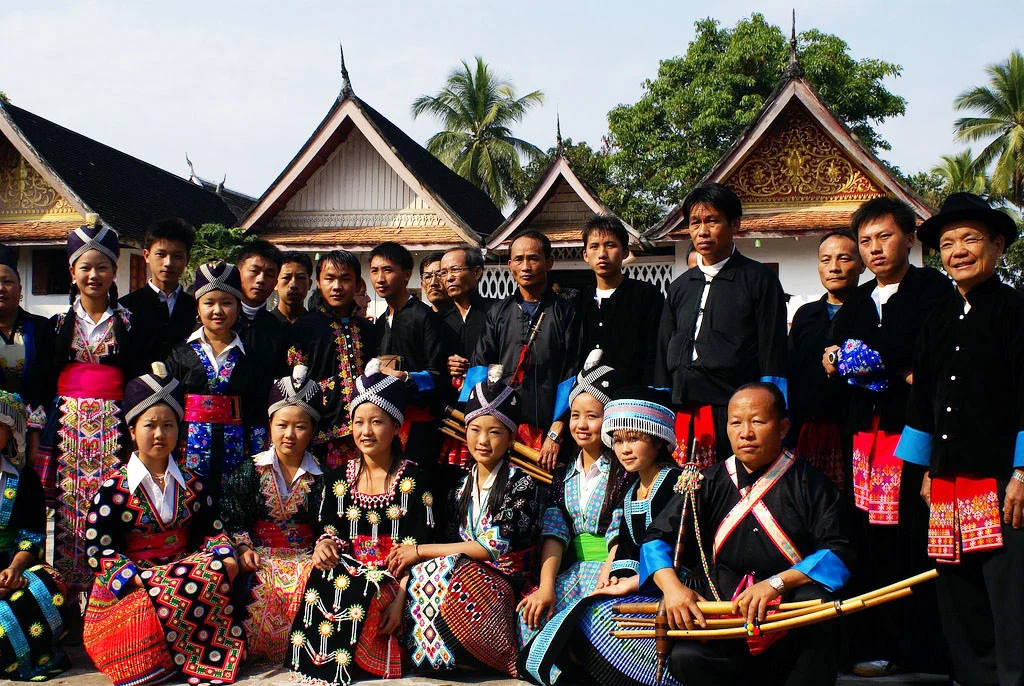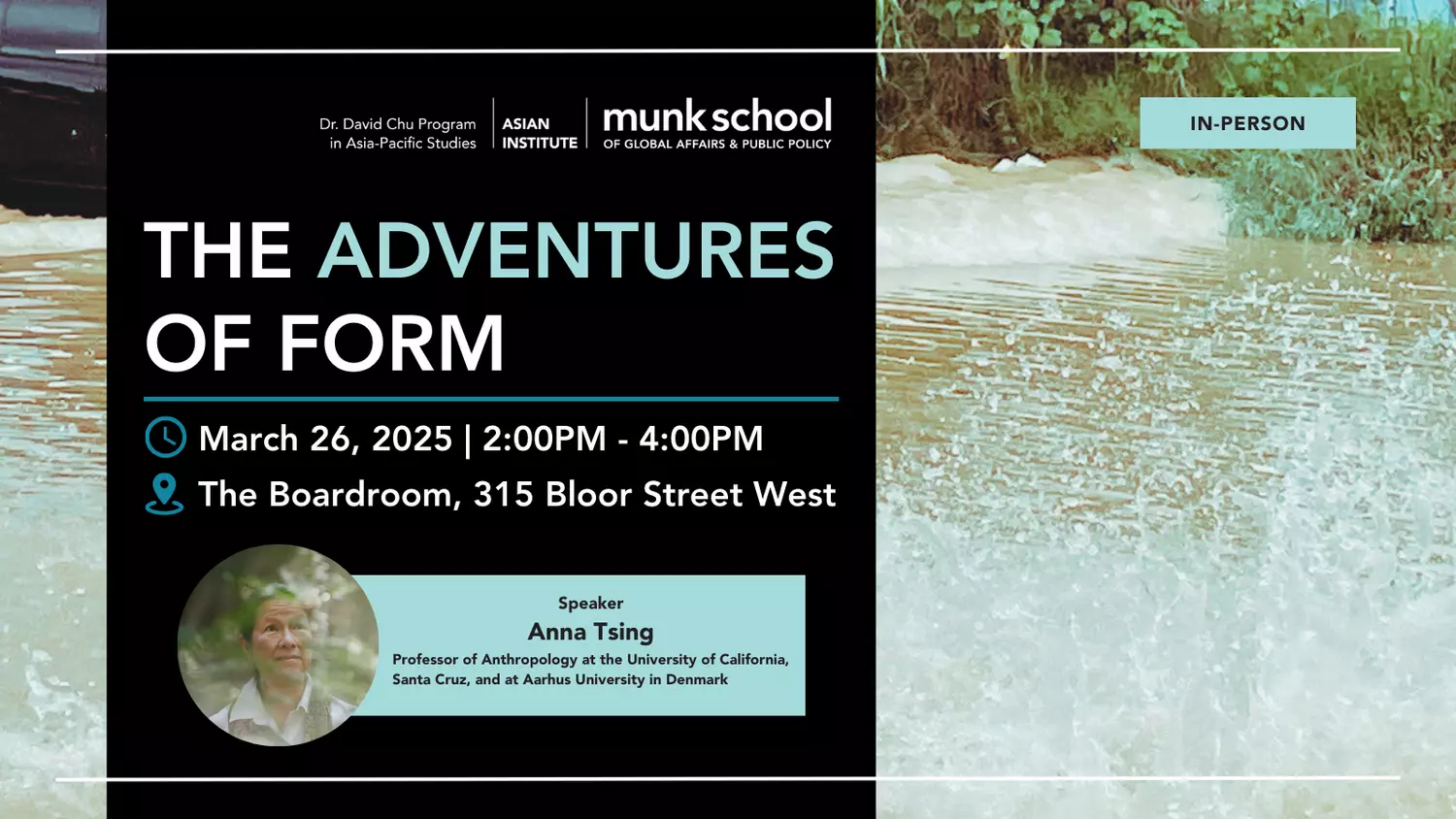On March 21, 2017, the Munk School of Global Affairs hosted Professor Mun Young Cho for a symposium titled “The Crisis of ‘Society’ and the Explosion of “The Social”: Social Construction Projects in South Korea and China”. Professor Cho is a distinguished Associate Professor in the Department of Cultural Anthropology at Yonsei University in South Korea. She is known for her extensive work on poverty labour development in China and South Korea. This event was sponsored by the Centre for the Study of Korea, and co-sponsored by the Asian Institute and Centre for Diaspora and Transnationalism Studies. The panel was moderated by several professors at the University of Toronto, including Professor Jesook Song, the Acting Director of the Centre for the Study of Korea; Professor Kevin O’Neill from the Department of Religion and Centre for the Study of Diaspora and Transnationalism; and Associate Professor Andrew Muehlebach from the Department of Anthropology. The symposium featured a discussion on projects of constructing civil society, or “the Social,” in South Korea and China.
Professor Cho introduced the first case of South Korea, starting with its historical context. She explained that in South Korea, social construction is situated at the intersection of government and social activist projects. The first wave of social construction began in the 1990s, when emerging discourses on civil society prompted activism in the democratic political space against a relatively authoritarian state. In 1997, the Asian Financial Crisis prompted new experiments that treated society as a site for social or democratic development, in order to overcome the failures of neoliberal economics and the developmental state. This phase marked a shift to increased cooperation between the state and civil society, creating a form of convergence between the two types of actors through viewing society as space of governance. Yet with government involvement, social welfare began to change. This phenomenon was seen in the 2000s, as new welfare acts that demarcated the “social” to refer to education, health, welfare, and cultural services, rather than former areas of labor and poverty civil organizations. This increasingly transformed civil society into a form of social economic organization based on pseudo market formulations and social enterprises. As a result, the social imaginary of “society” became a combination of multi-layered networked communities and local governments, forming a partnership for providing more effective welfare services.
Professor Cho explained that in China, the history of social construction was quite different. Social construction was an apparatus for expanding the state beyond economic development, by functioning as a mechanism for managing and governing society. With China’s rapid change in the past several decades, Professor Cho argued that there were increasing social contradictions in terms of land disputes, labor exploitation, and pollution. Thus, the state began to target these issues through social policies addressing flaws in public service, social security, social organization, grassroots movements, and rights of the masses. These governmental actions demonstrate a much broader scope than the South Korean government’s role in social construction. Professor Cho noted that in South Korea, social governance was focused on reflecting neoliberal economic development in the social consciousness. On the other hand, China emphasized how to secure political stability and economic growth through the “social.” She explained that the system that has emerged in China is primarily based on community-building as a means of governing cities and people. Since the 2000s, there has been comprehensive governance on the community level in China (she qu), rather than the former socialist work-based forms (danwei) of urban governance. This form of people-centered social governance allows social organizations to participate in social construction and the governance of civil society. In this way, the government can selectively include certain forms of civil society such as community-based initiatives, social work services, volunteering, and charity. Simultaneously, the government can also repress other forms like grassroots labour movements and rights-based missions.
After explaining the context of social projects, Professor Cho then analyzed how in practice, the inherent tensions resulting from the blurring of state and society has produced spaces of friction. For example, in South Korea, new social projects such as the Happy Together Community Centre were established by the government, while the management was devolved to social activists and civil society. However, such organizations tend to focus on education, culture, welfare, and issues consistent with government definitions of what “social” work should consist of. These organizations avoided the sphere of labour mobilization and fighting for human rights. This friction constitutes the problem of an ambiguous boundary between activism and governance. Workers who were once activists and now employed by the Community Centre were confronted with the issue of cooperation. Was the centre a government organization, or a civic association with operational autonomy? Professor Cho argued that this ambiguity showed how the distinction between public and private sectors blurred in the realm of social governance. Many activists began to see this in self-justifying terms, as they saw the state’s involvement as temporary and necessary to ensure the professionalism and autonomy of civil organizations. Professor Cho noted that this was a key moment in social construction. The language of social activity was changing from reforming structures and rights-based labor solutions. Today, one can see the new language focused on individual emotional predicaments managed through ethical practice mediated by the state and market.
Professor Cho continued to explain that social construction projects in China face similar frictions in distinguishing the state from the “society.” She highlighted the example of Longhua District in Shenzhen, which has been a part of state-led social development project to rebrand Shenzhen society as more than a place for manufacturing. Longhua became a place to move factories out of central Shenzhen, and served as a new site for workers’ social services. Under the umbrella of the district government, new social service incubators were created to help the government manage and support local organizations. Other changes include incorporating services for worker-employer disputes and recreational facilities to make factory relations more community-based. Professor Cho argued that in this respect, social work in China has become a key medium for depoliticized community-building while taking on the social burdens of state functions. Through cushioning social contradictions, social construction projects sustain state authority.
However, now, the friction that emerges for the “social” originates from this intimate and unequal relationship between the civil organizations and the party state. The success of social organizations depends on recognition and support from the government. Thus, an increasing number of young participants in social work have become co-opted and mobilized by the state, which often claims credit for community work done by others. Yet during numerous interviews, social workers in China voiced to Professor Cho their belief that despite the state’s co-optation, they must “continue resistance, [and] we must survive.” Thus, in this space of working with and against the state is an ongoing mission to raise civil society’s voices, resist, and fight against societal injustices.
Professor Cho concluded by stating that overall, state-led projects can be read as attempts to establish hegemony of “the social” among a variety of social expectations and institutional arrangements. These projects are which are variable and historically contingent. In these projects, one can see how “society” has been imagined and configured as a manageable field for state governance. This crisis of “the social” is also a crisis of the state in creating spaces of governance and civil activity. Overall, Professor Cho’s presentation provoked deep analysis regarding the concepts of society and the state’s role in society. The panel concluded with comments from Professor O’Neille and Muehlebach, who respectively made comparisons with social projects in Latin America and in the United States under Trumps presidency.
Eden Lee is a 4th Year student majoring in International Relations and Contemporary Asian Studies. She is particularly interested in the East Asian region and its economic and security developments.








